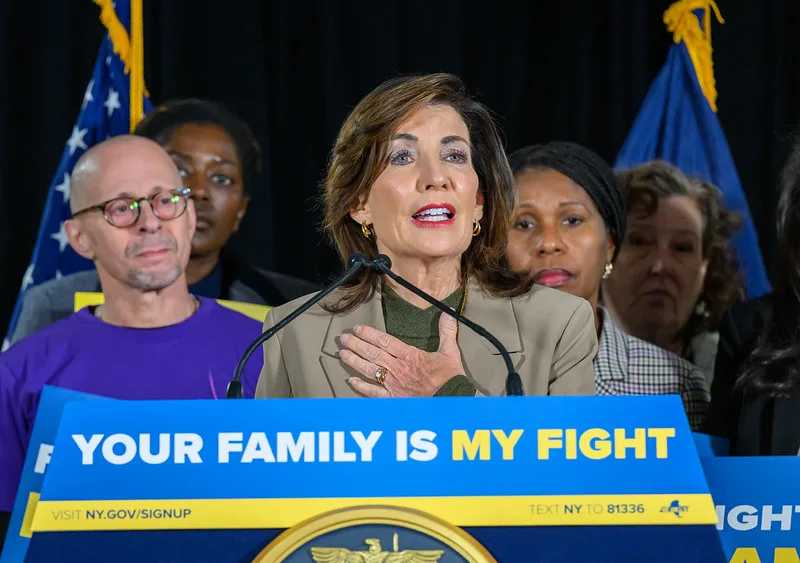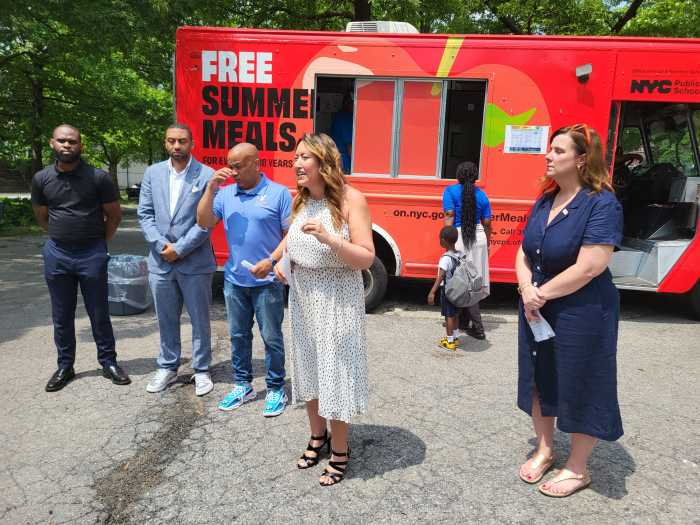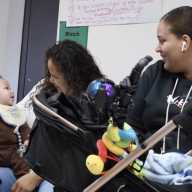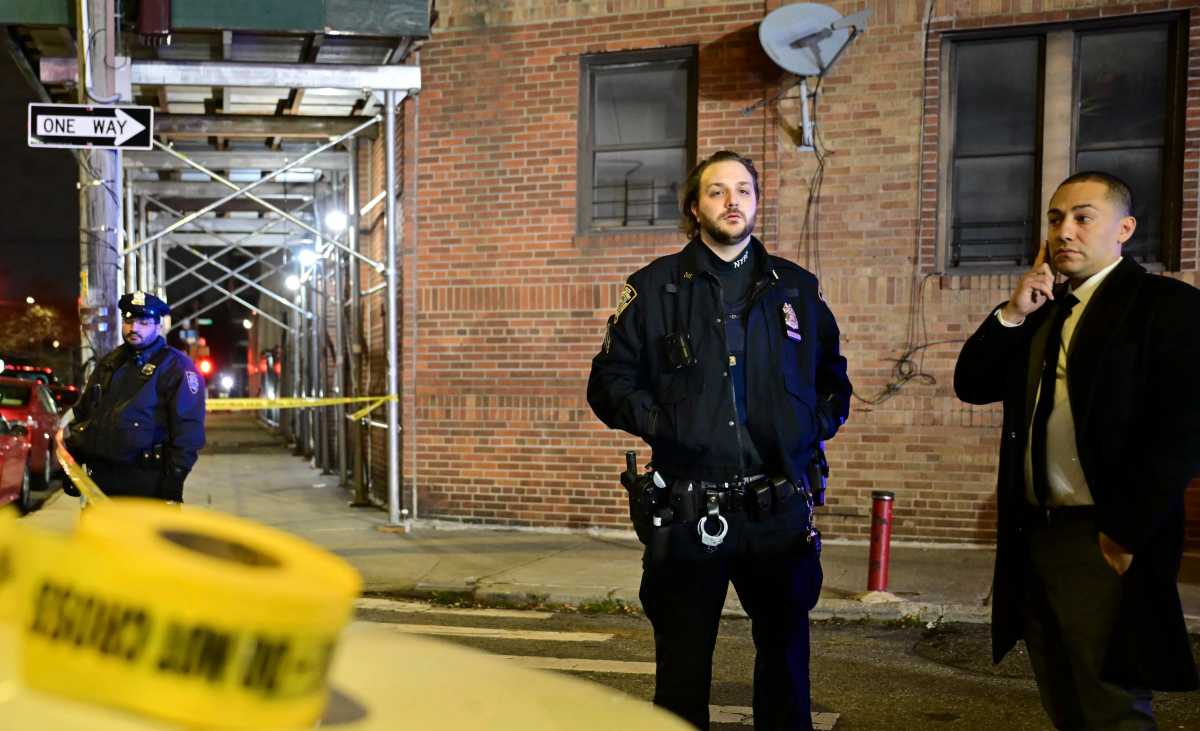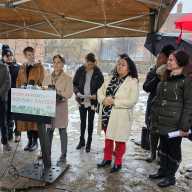Bronx resident Anthony Powell arrived at his local Supplemental Nutrition Assistance Program (SNAP) center at 8:30 a.m., as he’s done routinely since losing his benefits in May.
The last time he visited the office, he struggled to fill out an online application to get his benefits restored and was mistakenly classified as homeless.
This month, after waiting five hours, Powell, who is 68, had to leave to take his medication.
“I just keep running around, everything is being done by these computers,” Powell said. “I have days where I have to assess, ‘Am I going to go outside today?’ Because if you go out, you have to eat.”
Powell’s situation may soon become more pervasive for many in his neighborhood. In New York’s 15th congressional district, nearly 125,000 households — 43.5% of the district’s total — received SNAP benefits in 2023. It was the congressional district with the highest SNAP usage per household in the country in 2023, according to the U.S. Census Bureau’s American Community Survey and it remains one of the highest.
The One Big Beautiful Bill Act, signed by President Donald Trump in July, aims to reduce federal funding for SNAP, tighten work certification requirements and end food assistance for millions of people. In addition to the systemic cuts, millions of Americans are at risk of losing their food aid due to the ongoing government shutdown.
If the shutdown continues, SNAP benefit users won’t receive next month’s aid on Nov. 1.
“The so-called ‘Big Ugly Bill’ is not just a political threat, it’s a direct assault on the most vulnerable in our community,” New York State Senator Luis Sepúlveda told the Bronx Times. “Our community faces the loss of more than $900 million in SNAP benefits.”
Congress established SNAP in 1964 as part of the Food Stamp Act. It also set a standard of care that was respected around the world. That global standard is now in jeopardy, says Glenn Denning, author of “Universal Food Security” and professor at Columbia University.
“We’re living in a time when we should be seriously looking [at] increasing social safety net programs, not decreasing them,” he said.
In 2024, the program served 41.7 million people per month, according to the U.S. Department of Agriculture. The new bill cuts SNAP benefits by $184 billion through 2034, about 20% nationwide, according to Sepúlveda.
“Due to this substantial reduction, New York State will have to spend an additional $2.1 billion annually to be able to maintain current SNAP benefits,” Sepulveda said.
In New York State, nearly 3 million residents rely on SNAP. About 300,000 households are projected to lose some or all their benefits, with an average loss of $220 per month, according to a July statement by Governor Kathy Hochul.
Experts like Pamela Koch, an associate professor of nutrition and education at Columbia University say these cuts will dramatically affect many people’s access to food.
“I definitely think it could lead to more hunger in the Bronx neighborhoods.”
According to Safira Korin, manager of Sese Family Deli, a family-owned business in East Tremont, 99% of their customers make purchases using SNAP.
“Sese is not going to be able to pay the rent,” Korin said. “It’s going to be World War Three; the economy is already bad enough. There’s going to be a lot of crime, stealing and we’re going to hurt each other more.”
Regina Harvin, a Bronx resident who hasn’t had SNAP benefits for five months, agrees. She says the cuts to SNAP will lead to a rise in theft in the Bronx due to food insecurity.
“There will be more crime than ever before,” Harvin said. “When people can’t feed their kids, they’re going to steal.”
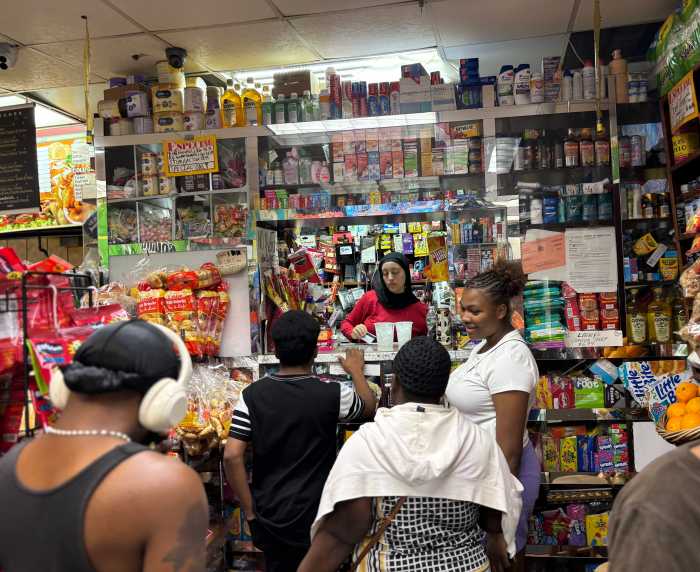
Every Saturday, Bethel Prayer Ministry hosts a food bank that serves 150 to 200 residents. The local ministry is one of many that serves East Tremont residents on a weekly basis. Rising grocery costs have resulted in increased demand for Bethel Prayer Ministry in 2025.
“The line keeps getting longer and longer,” said Akwasi Prempeh, Bethel Prayer Ministry supervisor. “With rising cost of food, it’s going to make it difficult for a lot of families. It’s going to bring hardship onto them.”
After multiple attempts, Powell successfully reinstated his benefits, but says the SNAP system was broken and is in favor of the new bill. Powell has observed alleged misuse of benefits, including selling food stamps for independent gain, he said.
Other residents disagree. Maria Robles, grandmother to eight children, receives $291 a month in SNAP benefits — money that is critical to providing her family with enough food. She has been avoiding watching the news out of fear.
“It’s going to be hard. Trump wants to make the rich richer, and the poor poorer,” Robles said. “We’re poor already. How much poorer do we need to be?”
Kylie Clifton is a contributing writer at the Bronx Times and a data journalism student at the Columbia University Graduate School of Journalism. She can be reached at kylie.clifton23@gmail.com or (269) 615-0800. For more coverage, subscribe to our newsletter and follow us on Twitter, Facebook and



